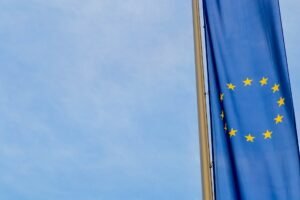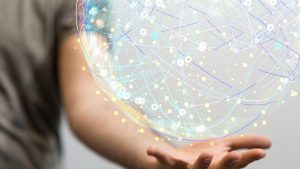Two clichés sum up well the association between ideas and the conception of startups: Nothing comes from nothing and nothing is created, everything is copied. They correspond to the classic definition of this stage of company, established by the gathering of people, performing a business model, repeatable and scalable, in an environment of extreme uncertainty.
The creation of this business model, or any other, disruptive or not, necessarily emerges from the reuse and re-elaboration of ideas, that is, from the continuous re-feeding of pre-existing elements. It is accepted that the great innovations created by humanity, inclusive, did not result from isolated superior minds. On the contrary: they needed propitious environments where they could flourish. That is where we will see that a mere idea, or that a brilliant idea, must pass not only through a routine of validations, but mainly by the sieve of intellectual rights rules.
In the first instance, the idea itself does not enjoy any specific legal protection, after all it is not given to have a monopoly on a pure idea. It has become a classic of the seventh art the episode involving the clash between Mark Zuckerberg and the Winklevoss twin brothers. At the time, the initial idea was allegedly to scan a traditional book of Harvard students’ profiles by connecting them through a virtual network. In the end, it fell to Zuckerberg to claim authorship of Facebook and the Winklevoss twins to accept a settlement and confidentiality agreement.
In the recently launched book “Law For Startups. Da Ideação ao Exit”, published by Instituto de Conhecimento and Editora Almedina, the authors, Helder Galvão and Armando Martins Ferreira, present some measures to be taken, both in this famous episode between Zuckerberg and the Winklevoss twins, and for any other founder, including you, the reader.
Firstly, and under the legal aspect, the copyright on a certain idea will only be recognized and, consequently, worthy of protection, from the moment that this creation of spirit, expressed by any means, is fixed in any tangible support.
Therefore, initially, it is fundamental to develop the project, to fix it in a sketch or drawing or even in a descriptive report, everything in order to materialize the initial idea.
Another common and popular resource in the segment of startups is the creation of the Minimum Viable Product, called MVP (Minimum Value Product). The MVP, being the very externalization of the idea, is vested with the necessary requirements to obtain copyrights over a certain intellectual creation. It is even said that Twitter’s MVP is extremely simple, but simple enough to become a global product, as we know. It may also be stated that algorithms, drawings, sketches, notes, among other intellectual creations expressed by any means, fixed in a tangible support, related to the MVP, may be recognized under copyright. And, it goes further: the Canvas itself, evidently in the analysis of each case, may be recognized as a protected work. This is what we will see below.
Certainly, the idea of Facebook, then The Facebook, was not new, since as already mentioned, it is a tradition in North American universities to make a book with the students’ profiles. This is therefore, the second relevant aspect. The requirement of novelty is not necessary, but of originality, although this concept is controversial and subjective. Denis Borges Barbosa, a famous Brazilian jurist, defends the minimum contribution of originality as an activity of its own, which adds something new to the existing reality. The North American Adam Grant says that a startup is involved, necessarily, by the originality status, to the extent that it takes a path less travelled, defending new combinations of ideas that contradict the current thinking and that result in something better for society or for the resolution of a problem, what is conventionally called disruption. Intellectual creation then needs to represent an objective contribution to society as an intellectual collaboration.
It is also important to bust a few myths. Technically, nothing Elon Musk has done is eminently inventive or original. Electric cars, for example, have already been developed by GM and commercially exploited by Toyota with the Prius model. Steve Jobs and Steve Wozniak’s fourth generation computer, the Apple Lisa, was conceived after strong influence from the research area of its competitor at the time, Xerox. Another example that ideas should circulate freely, was the case of the Brazilian clothing company Reserva that launched the motto of donating a plate of food for every piece of clothing sold, but whose proposal had already been launched previously by the Californian footwear brand Toms, where the consumer buys a pair of shoes and the company donates another to a child in a developing country. Other examples are Diners Club, the first credit card issuer, which was followed byVisa and Mastercard, as well as the car-sharing service, Connect, which bears a strong resemblance to the Zipcar model, which was once a startup.
The start-up market itself, in front of the proliferation of appropriation of ideas and, shall we say, imitations, coined the expression copycats, which comes to be start-ups or even traditional companies that copy existing business models, but implementing competitive advantages and improvements, capitalizing on the flaws of the innovative companies’ initial offerings. It is not different, therefore, to identify companies linked to technology, data programming and information technology that explore the same market segment, such as Uber and Cabify, Groupon, most lawtechs, which offer online mediations, process management, document reading, among other companies that compete with each other. It is known that free competition is a constitutional precept, and unfair competition is not allowed, as is the case of trademark collision to the extent of causing confusion to the consumer, or the use of similar visual identity or in a parasitic manner.
As Steve Jobs said, paraphrasing Picasso, “good artists copy, great artists steal. And we have always been shameless at stealing great ideas”.






